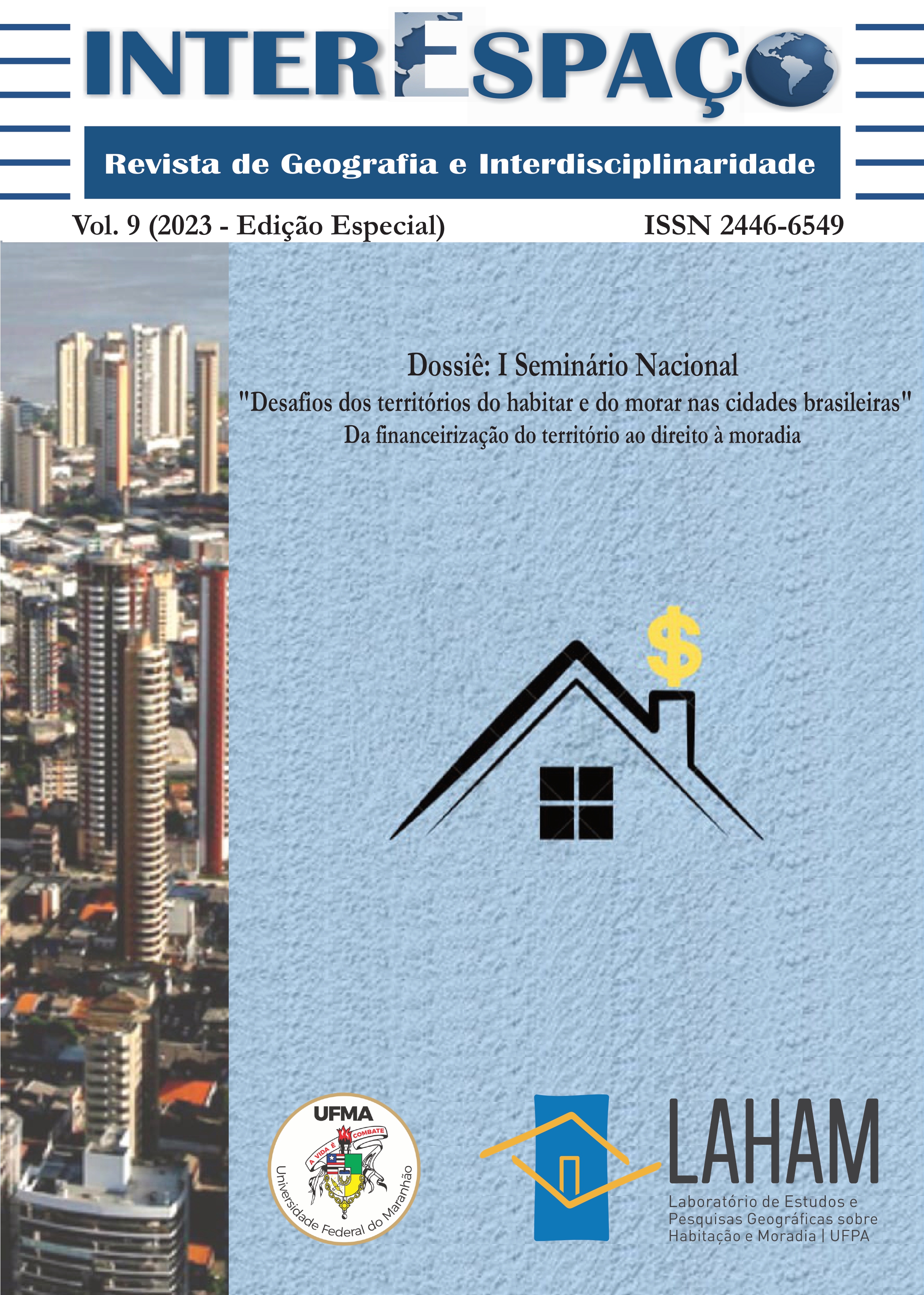URBAN PLANNING AND HOUSING POLICY IN MACAPÁ
the analysis of the right to housing in Joint Açucena from the viewpoint of the new urban agenda
DOI:
https://doi.org/10.18764/2446-6549.e2023.08Keywords:
Amapá, Urban Growth, Social HabitationAbstract
Understanding the housing dynamics of the city of Macapá presupposes the analysis of its historical
urban planning process. The urban and housing density of Amapá state and the capital are directly
related to the regional policies implemented. As a result, public initiatives emerged for housing
complexes constructions, aiming to respond to the populational demands for housing and basic
infrastructure with significant interventions. The method of analysis was logical-historical and
dialectical to confront the contradictions about housing policy. The methodology used was the
analysis of scientific works already produced on the subject and official documents and projects of
social interest housing projects. The article aims to discuss how the implementation of housing policies in Macapá, from the federal government “Minha Casa Minha Vida” program, impacted the urban structure of Macapá and the improvement of life for the local population, highlighting the case of analysis of the Complex Açucena completed in 2018. The relevance of the theme is to demonstrate the counterpoints of housing projects of social interest from the vision of the New Urban Agenda.
Downloads
Downloads
Published
How to Cite
Issue
Section
License

This work is licensed under a Creative Commons Attribution-NonCommercial-NoDerivatives 4.0 International License.
Direitos autorais InterEspaço: Revista de Geografia e Interdisciplinaridade
Este obra está licenciado com uma Licença Creative Commons Atribuição-NãoComercial-SemDerivações 4.0 Internacional.
Os conteúdos publicados são de inteira e exclusiva responsabilidade de seus autores, ainda que reservado aos editores o direito de proceder a ajustes textuais e de adequação às normas da publicação.







